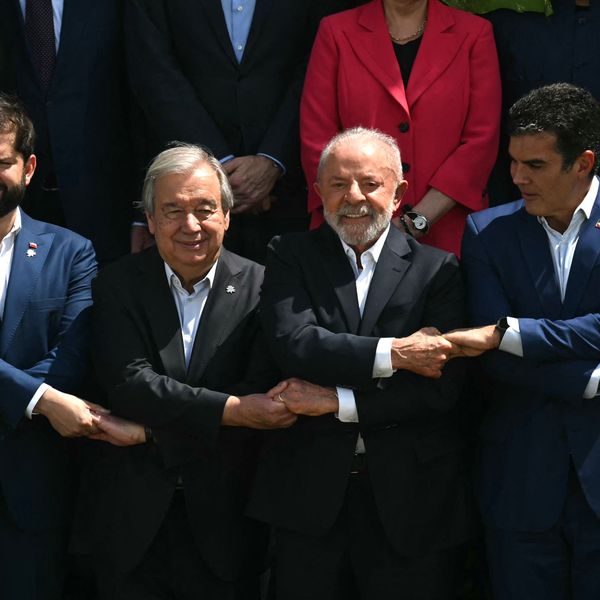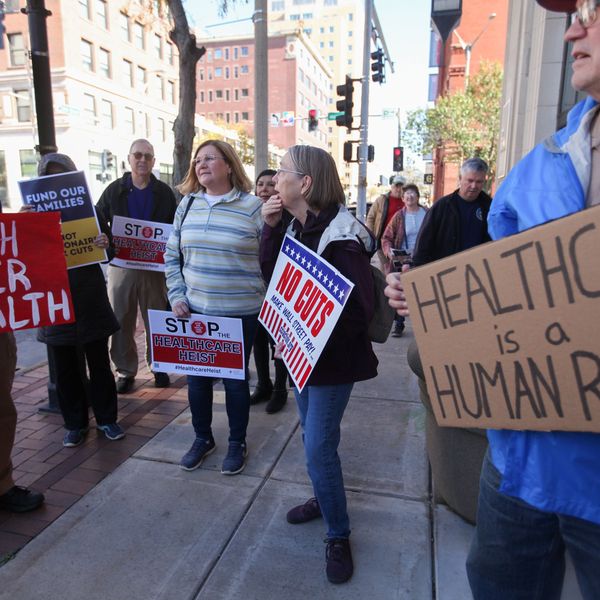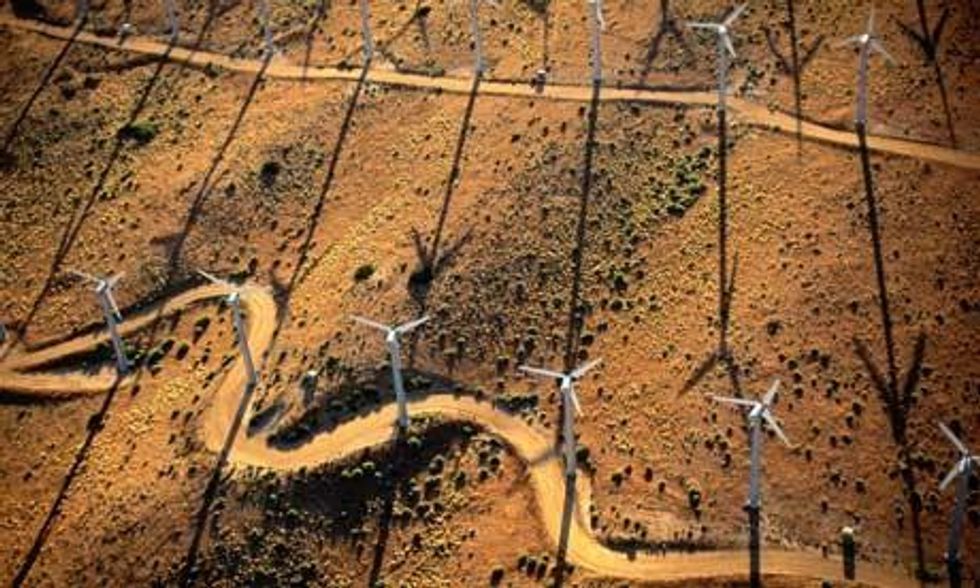There are a lot of big issues that you won't be hearing much about during the closing weeks of the presidential race.
One of them is the war in Afghanistan. Don't expect either candidate to offer any fresh ideas - they have none - about how we are going to extricate ourselves from this decade-long quagmire.
Campaign finance reform, arguably the most critical issue for the future of our democracy, is likewise off the table. Both candidates are neck deep in corporate cash and not inclined to bite the hand that is feeding them. The US economy remains in the doldrums, yet we are going to get little more than partisan finger-pointing instead of the tough talk about the systemic roots of America's economic decline that we need to hear.
But in this campaign season, in which so many important issues are not being discussed, arguably the biggest of them all is global warming.
Which is not to say that President Obama won't mention it. He already has. In his convention speech, Obama stated that "Climate change is not a hoax." This was a swipe at Romney, who had made light of the issue in his own acceptance speech a week earlier:
"President Obama promised to begin to slow the rise of the oceans and to heal the planet. My promise is to help you and your family."
Romney got laughs and a standing ovation for this joke in Tampa. But it did not play well in the world beyond the convention floor where the candidate's words were widely regarded as only slightly less bizarre than Clint Eastwood's conversation with an empty chair.
In contrast, Obama pointed out that his administration has increased investments in green energy, strengthened fuel economy standards on cars and tightened emissions limits on coal-fueled power plants. Romney, for his part, vowed in a TV ad broadcast in the coalmining swing state of Ohio that he will repeal this regulation within 100 days of taking office. He also said that he wants to strip the EPA of its mandate under the Clean Air Act to restrict CO2 pollution.
But that is as far as it is likely to go. The Republican nominee will do his best to avoid ever saying the words "global warming" during the next five weeks. The League of Conservation Voters has launched a petition drive to get Jim Lehrer to ask about climate change, which it calls "the greatest challenge of our generation", during the first debate (on the economy) on 3 October.
If Lehrer does so, don't expect the president to offer a serious new plan for reining in greenhouse gases. He failed to get approval for his own comprehensive energy and climate bill in the Senate two years ago, in what former Vice-president Al Gore and other environmentalists viewed as a half-hearted, disorganized effort. And there is little evidence that Obama has the stomach for another fight over cap-and-trade with the Republicans anytime soon.
Which is a crying shame. Scientists predict that if we don't act now to curb greenhouse gases, ocean levels will rise by a meter or more by the end of the century, threatening 10% of the world's population who live in low-lying coastal areas that are vulnerable to storm surges. Climate change will also play havoc with global agriculture. Monsoon patterns in Asia's rice basket will be disrupted. And arid regions in the US south-west and the Sahel will become even drier, leading to famine in Africa and elsewhere. A report by the World Health Organization says that: "Climatic changes already are estimated to cause over 150,000 deaths annually."
A Tufts University study (pdf) predicts that the cost of climate change in America alone could be as high as 3.6% of US GDP, an estimated $3.8tn in today's dollars, by 2100. The report concludes that "The longer we wait, the more painful and expensive the consequences will be."
But don't expect this reality to intrude upon the current presidential contest. Both Romney and Obama see global warming as a no-win issue for them. Romney won't alienate his rightwing supporters by addressing something most of them don't even believe is happening. And Obama is convinced that he has nothing to gain from talking about cutting CO2 emissions, especially in the swing states of the rust belt where regulation of industry would be portrayed as a job-killer.
The president may be underestimating public support for action on global warming. Attitudes appear to be shifting - partly in response to this summer's record temperatures and crop-killing drought, which afflicted over half of the country. One survey showed that belief in climate change is on the rise, most notably in the south and in Texas, which suffered the worst of the recent heatwave.
Polls suggest that over 70% of Americans now believe that climate change is a reality. This is up from the 52% who held these views in 2010, according to a Brookings survey.
Even more significant for the presidential race is the fact that over half of currently undecided voters say that global warming is one of several important issues that will guide their voting choice in November. A majority of those surveyed by the Yale Project on Climate Change believe that President Obama and the Congress need to do more to address this issue than they are currently doing. Granted, climate change remains an abstract issue for most Americans who are more focused on the state of the economy and matters that hit closer to home like entitlements and health policy.
Still, it would arguably make political sense for the president to say more, if only to energize members of his own base - many of whom have been turned off by the perception that he has not fought hard enough for the environment. Obama could highlight the things that he has already accomplished: in addition to tightening pollution standards for cars and power plants, the production of renewable energy has increased in the US by about 25% during the last four years and tens of thousands of new jobs have been created as the result of tax cuts for green industries. The president has also called on Congress to end tax breaks and cut subsidies for big oil and coal.
Environmental activists applaud these moves, but say that they are not enough. They argue that the US, the world's largest producer of greenhouse gases per capita (China recently surpassed us in sheer volume), needs to lead the fight to limit carbon emissions, rather continuing to block global treaties as it has done in the past. Some have called on the president to mount a Manhattan Project on green energy, enlisting the national laboratories at Los Alamos and elsewhere for a major research and development push, which could position the US to take advantage of the growing market for inexpensive renewable energy technology.
Barack Obama knows what the challenge is, should he be re-elected. Whether he has the political grit to do battle on cutting greenhouse gases the second time around remains to be seen.




